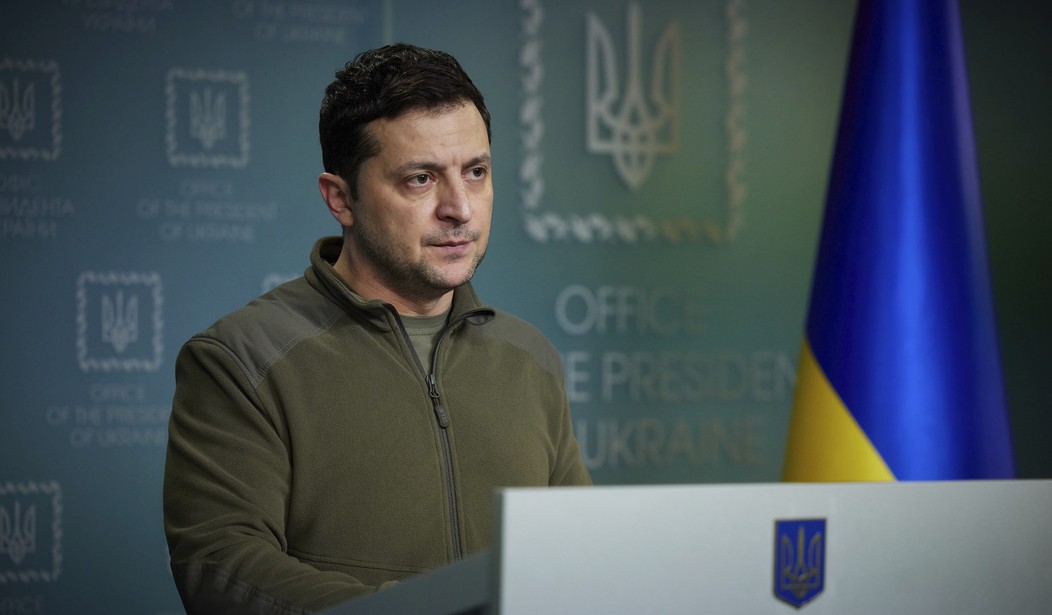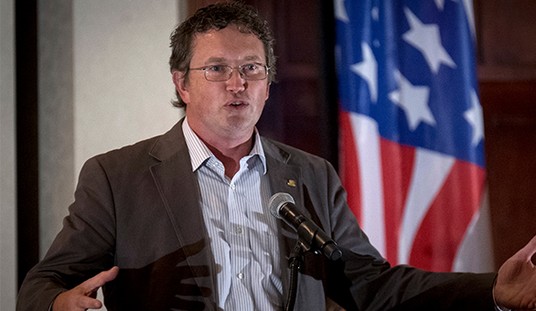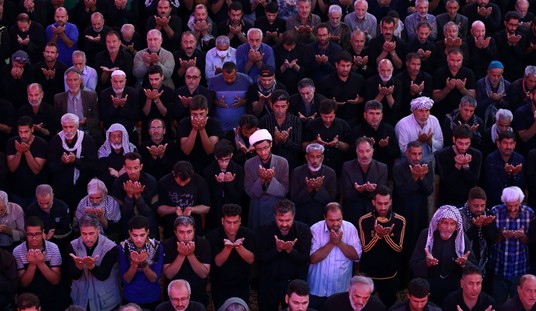The ruling body of the Ukrainian Orthodox Church (UOC) appealed to Ukrainian President Volodymyr Zelensky Friday, asking that he reconsider his decision to evict it from its headquarters, the Kyiv Pechersk Lavra monastery. Many outside Ukraine, including some who have admired Zelensky and hoped he would manage to defeat the Russians, have been puzzled as well as Zelensky has moved decisively against the Church. In December, he signed a decree banning the UOC, to which millions of Ukrainians belong. In mid-March, thousands of those Ukrainians gathered outside the monastery to pray and show their support for the monks whom Zelensky has ordered to vacate the premises. This is all at odds with Zelensky’s image in the West: this is the new Churchill? A man who evicts monks from their monastery and closes churches?
The UOC’s leadership wrote to Zelensky: “Our Church, to which many millions of fellow-citizens belong, has always educated its flock to love their motherland, be worthy state citizens, and fulfil their civic duties with dignity. When the Russian Federation invaded, it was the first to condemn this military aggression strongly and call on its believers to defend their native land. We respectfully appeal to you, as the head of state and guarantor of compliance with Ukraine’s constitutional norms, to ensure the right to freedom of conscience and religion for our faithful, and to prevent the adoption of anti-constitutional laws against the Church.” Why is Zelensky acting against the freedom of conscience?
One key to understanding his actions is the often overlooked fact there is actually more than one Ukrainian Orthodox Church. This situation goes back to the period when Ukraine was a republic of the Soviet Union. When the nation won its independence in 1991, the Ukrainian Church did not, and remained under the ecclesiastical jurisdiction of the Patriarchate of Moscow, which rebuffed repeated Ukrainian requests for autocephaly, or ecclesiastical independence. However, some Ukrainian Orthodox began to operate independently of Moscow. Finally, in January 2019, Ecumenical Patriarch Bartholomew of Constantinople granted autocephaly to this Ukrainian Orthodox Church. Moscow refused to recognize this, severed relations with Constantinople, and continued its operations in Ukraine.
Back in the relatively calm and peaceful days of April 2018, four years before the war began and nine months before the Ecumenical Patriarch officially granted autocephaly, the Religion News Service estimated that 40 percent of Orthodox Christian Ukrainians belonged to the independent Church, and 25 percent to the Church of the Moscow Patriarchate. Since Putin began his war, however, the Ukrainian Church of the Moscow Patriarchate has seen a steady decline in its following, as millions of Ukrainians have shifted their allegiance to the independent Church. A July 2022 survey showed only four percent of Ukrainians stating that they belonged to the Church of the Moscow Patriarchate.
Trying to stem this decline, the Ukrainian Church of the Moscow Patriarchate officially severed ties with Moscow in May 2022. That is the Church that Zelensky is acting against, and that appealed to him on Friday. Zelensky still contends that this Church is not so much a Church as an arm of Vladimir Putin and the KGB, and thus a subversive force within Ukraine. As he moved against the Church linked to the Moscow Patriarchate, Zelensky said Monday that “one more step towards strengthening our spiritual independence was taken this week.”
Zelensky’s government has offered evidence to support its contention that the Church of the Moscow Patriarchate continues to be an instrument of the Russian state. On December 2, 2022, the Associated Press, “members of the Security Service of Ukraine, the country’s National Guard and police searched the monastery last week after a priest spoke favorably about Russia during a service there. The Security Service said its agents searched more than 350 church buildings in all, including at another monastery and in a diocese of the Rivne region, 240 kilometers (150 miles) west of Kyiv.” According to that Ukrainian security agency, the SBU, the searches found “pro-Russian literature, which is used during studies in seminaries and parish schools, including for propaganda of the ‘Russian world.’” The SBU said it was undertaking “systematic work to counter the subversive activities of the Russian special services in Ukraine.”
Related: Questions Without Answers About Ukraine
Is it possible that Moscow would be conducting subversive actions through its Church in Ukraine even after that Church had officially broken relations with it? Certainly. After all, Moscow Patriarch Kirill spied for the KGB in the 1970s and many contend that he is still a KGB operative. Nevertheless, the monks at the Lavra insist that they’re not engaged in any kind of work for the Russian government. Zelensky, however, was adamant on Monday, saying: “We will continue this movement. We will not allow the terrorist state any opportunity to manipulate the spiritual life of our people, to destroy Ukrainian shrines — our Lavras — or to steal values from them.”
Yet at the same time, it cannot be said that the thousands of Ukrainians who stood and prayed outside the monastery are KGB operatives. They don’t deserve to be punished for exercising their religious faith. If Zelensky wishes to maintain the wholehearted support he has enjoyed in many quarters of the West, he would be wise to ease up on the Lavra and the Church of which it is the headquarters, while maintaining vigilance regarding any actual subversive activity. Otherwise, the evicted monks and orphaned faithful will stand in mute witness against his claims to represent the side of freedom against tyranny.










Join the conversation as a VIP Member